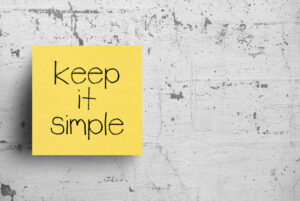KEY TAKEAWAYS:
- Standard wisdom says that being tough is best and that nice people can’t be tough, but standard wisdom is wrong.
- People like nice people and are therefore more willing to make reasonable compromises when negotiating opposite a kind counterparty.
- In commercial contract and services deals, nice negotiators reach better overall outcomes than competitive negotiators.

Common wisdom tells us that the best negotiators are bulldogs, tigers, or other supposedly vicious animals. We imagine the brutal negotiator tearing apart their helpless counterparty and emerging victorious.
But what if common wisdom is wrong? Being “nice” in a contract negotiation might just be your secret superpower.
Conventional Wisdom and Being “Nice”
Before we dig in any further, it’s important to define what I mean when I refer to a “nice” negotiator. A “nice” negotiator is kind to and respectful of their counterparties. For example, the nice negotiator is reasonably flexible about scheduling a call to discuss the contract, and prompt in their responses. The nice negotiator uses an appropriate tone and communicates in a professional manner, even if the counterparty is being unreasonable or rude. They act in a way that they would be embarrassed to act in front of their parent, child, or a journalist for a major publication.
However, being “nice” does not mean that the negotiator is a pushover or agrees to every request. It doesn’t mean that they aren’t also tough negotiators committed to getting the best deal for their client. They are still tough. But even in toughness, they are kind.
Why Being Aggressive or Rude Isn’t the Benefit We’re Told It is
Unlike in courtrooms, there is no judge or jury in a contract negotiation. There are no points awarded for a zinger, and no benefit to making the counterparty look dumb (there isn’t really in a courtroom either – but TV would lead some of us to believe otherwise).
The idea of winning by being right simply doesn’t apply in contract negotiation. It doesn’t matter how much more “right” your position is than your counterparty’s, unless you can convince your counterparty to agree to it. Basic psychology dictates that making someone feel stupid or unimportant because you are right and they are wrong is not a great way to bring them around to your position.
Why Being Nice Works In Contract Negotiation
1. Creates space to work collaboratively.
First, kindness sets a positive tone for the negotiation off the bat. It is easier to get things done when the general tone is collaborative and positive, rather than hostile and negative. It’s often easy to establish a positive working relationship from day one of a negotiation by sending a friendly email, or picking up the phone to introduce yourself. With a positive working relationship established, the negotiation will likely go more quickly and easily, and will be less emotionally draining on both parties. This increases the chances of a great outcome.
Plus, in many contracts, the importance of the relationship between the parties extends beyond the date on which the contract is signed. An article by Psychology Today entitled When Can Negotiators Profit by Not Focusing on Profit? describes how “soft—collaborative, accommodating—negotiators attain better economic outcomes than competitive negotiators” in deals where the post-contract relationship is important to the parties, such as in services agreements.
2. Tends to lead to more Yes’s.
Second, negotiators are typically more willing to concede certain points to counterparties they like. If you have ever negotiated against a jerk, you know exactly what I mean. It doesn’t feel good to provide unnecessary benefit to a jerk – and so, unless it’s strictly necessary – we don’t do it. In contract, it feels great to be able to add a little value to a person we do like, and we’re likely to do so if conceding the point doesn’t really impact our client much. Your being nice to your counterparty is a simple thing you can do that may result in a number of small wins, or even big ones, for your client.
3. Expands overall contract value.
Third, one highly effective way to get a better result in contract negotiation is to expand the overall value associated with the contract. When the negotiators on both sides approach the negotiation as a joint effort to reach the best possible outcome, rather than an effort to beat each other, the possibility of incremental value creation goes up.
That way, rather than one party getting more and one getting less, both can get more because the available good (or value) has become bigger. Until negotiators really dig into a negotiation and open up excellent lines of communication, it may be difficult to identify opportunities for increased overall value. Being nice helps get the negotiation to a point where open lines of communication are possible, and that extra value can be identified.
How to Be Nice And Get Results
If you are a kind person, which you probably are, you’ll likely tend naturally towards being nice in contract negotiations, too. Here are three nice things you can do in a contract negotiation that, though seemingly small, may result in meaningful added value to your client.
- Start the negotiations with a positive tone by sending a warm email or making a phone call. Introduce yourself on the phone, or add kind sentiments to your email like “looking forward to working with you” or “excited to get this done together.” Keep the tone positive throughout the negotiation, if you can. Put similarly in How to Negotiate Nicely Without Being a Pushover, a Harvard Business Review article, it’s important that you “make small talk”. That article notes that, in a Stanford study, students who were required to engage in small talk before a negotiation were significantly more likely to come to agreement than those students who weren’t.
- Be responsive in your communications during the negotiation. If you anticipate a long delay, let the counterparty know ahead of time. Providing regular status updates can help establish trust and keep all involved parties aligned.
- Be reasonably flexible in how you negotiate the contract. Of course it’s important to strategically think through what will be best for your client (passing redlines, Zoom, in person meetings, etc.), but if you’ve settled on a general approach, provide multiple options of availability where you can, affording your counterparty the same flexibility you’d want from them.
Adopting a “nice” approach to contract negotiation will likely lead to better outcomes, and you may find it more pleasant too. If you haven’t given it a try yet, what are you waiting for?


















2 Responses
I could not agree more with the premise of this article. You’ve got to be yourself during a negotiation and, hopefully, that means being nice. I’ve negotiated against a fair number of counterparties who were…well, not nice is putting it mildly. I’d let them rant in front of their clients and then, when they ran out of steam, get back to work on the deal.
Excellent Heather – thank you. Relational contracting is so important (“the importance of the relationship between the parties extends beyond the date on which the contract is signed.”) – well said! This requires the skill set you share. Appreciate your article and look forward to hearing more on June 13. Rod